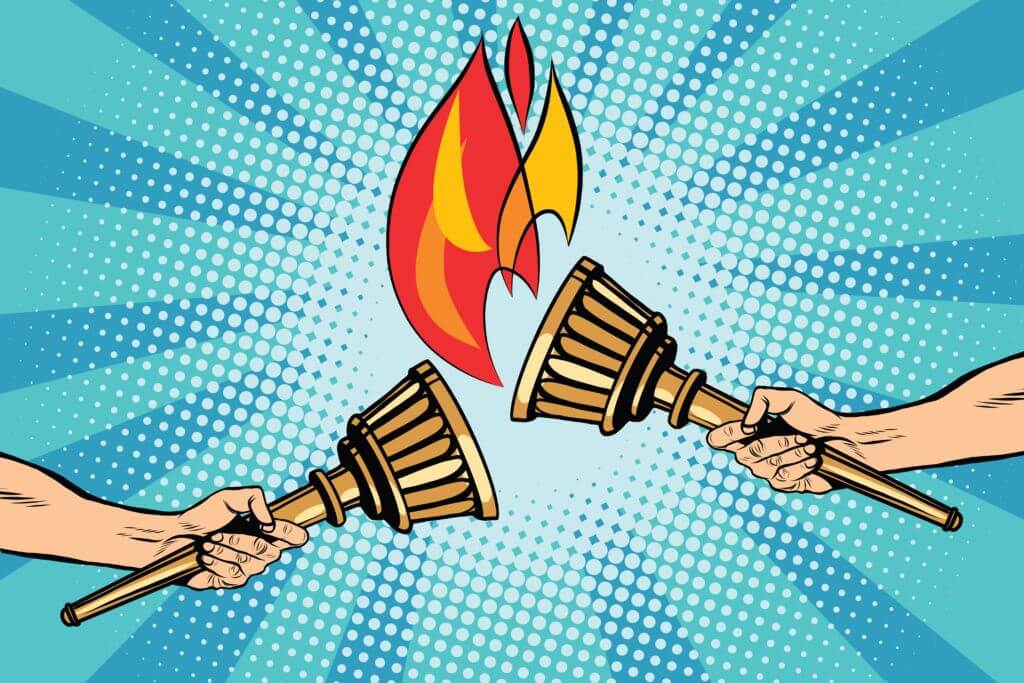Multi-Trillion Asset Manager Fidelity Takes the Bitcoin Lightning Torch

Fidelity becomes the first mainstream financial institution to take the lightning torch and join the bitcoin lightning trust chain. | Source: Shutterstock
The Lightning Network torch, which was previously passed to Jack Dorsey and numerous Bitcoin celebrities, has found its way to the traditional finance sector. Fidelity Digital Assets, who are nearing completion of their crypto trading platform, took the torch during the weekend.
Forbes is the 17th largest American company according to Forbes, as well as one of its best employers. The company first started looking into cryptocurrency near the end of 2017 (along with thousands of others), and early in 2018 announced the launch of its Digital Assets wing.
#LNTrustChain Value Grows Past $100
The #LNTrustChain experiment shows the Lightning Network enables people to make microtransactions via Bitcoin. To date the torch’s value is still under $1000. It began as a bit of a joke from @hodlonaut:
Bitcoin Cash developer Amaury Sechet commented in an interview with CCN.com that he believed the torch would eventually be stolen. As its value grows, the risk grows too.
After the torch found its way into Jack Dorsey’s hands, people began to think bigger. Why not Elon Musk and beyond? Thus far Musk has decided not to take the torch, but he did recently speak on the subject of cryptocurrencies. William Shatner even commented on the affair. (His comment was likely sarcastic.)
Recently one of the early pioneers of Bitcoin exchanges, Charlie Shrem, took the Lightning Network torch. Shrem is famous for his founding of BitInstant, a convenient and advanced exchange for its day, as well as going to prison for money laundering. After his release he’s crossed the headlines as subject of a lawsuit from the Winklevoss twins. He promoted one or two ICOs before starting his current endeavor, CryptoIQ .
An Iranian Bitcoiner Wants the Torch Something Awful
With some degree of irony, several Twitter users suggested that Fidelity send the torch to an Iranian national. US sanctions complicate any type of business with Iranians. Bitcoin transactions are not exempt.
https://twitter.com/Ziya_Sadr/status/1099791673020821504
Andreas Antonoupoulos recently commented on the situation with the Treasury Department’s “no pay” list, its own version of the “no fly list.” While simply listing addresses as “banned” is not a technologically enforceable way to prevent commerce between Americans and Iranians, it’s “genius” as a political enforcement tool. The famed Bitcoin speaker and proponent believes the strategy of the government is to have a “chilling effect” crypto users.
From Fidelity, which owns the DigitalAssets handle on Twitter, the Lightning Network torch passed to Harvard Business School Blockchain & Crypto Club.
It has yet to land in the possession of Ziya Sadr. His publicly posted address on Twitter has received less than .1 BTC since its first transaction in May, 2018. We wonder how much US sanctions plays a part in his Bitcoin activity, given how many exchanges and Bitcoin services are based in the US and subject to her laws.
The actual current value of the Lightning Network torch , at press time, is .03670 or around $140, depending on which exchange you ask. Every participant adds 10,000 satoshis, and to date no one has added more than that, though it would be interesting if someone made it interesting with an extra .25 or something.